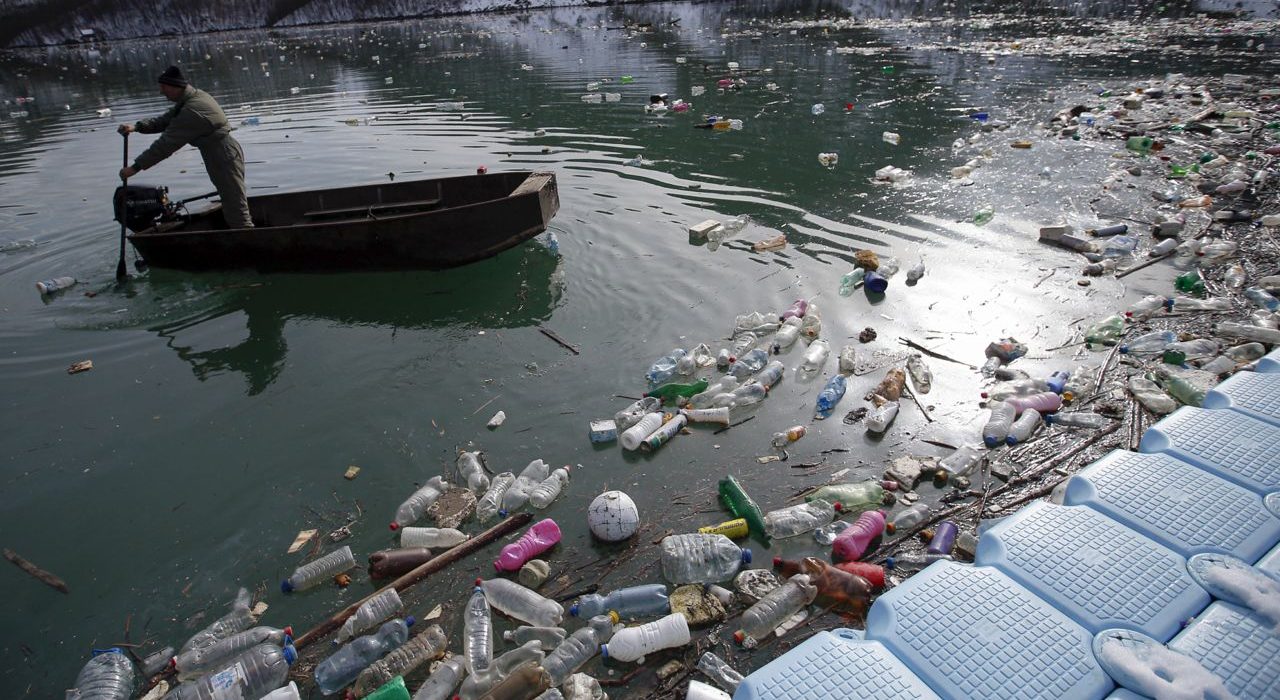Plastic pollution has transcended geographical boundaries, emerging as a ubiquitous global dilemma, leaving trails of debris on coastlines, roadsides, landfills, and waterways. The repercussions are profound, with detrimental effects on marine life and the insidious infiltration of plastic into the human food chain. In response to this escalating crisis, The Recycled Island Foundation (RIF), hailing from the Netherlands, has embarked on a mission of Global Plastic Cleanup Initiative that goes beyond mere acknowledgment.
Understanding the intricate interconnectedness of waterways within the global ecosystem, RIF has assumed the mantle of addressing the twin challenges of plastic waste cleanup and recycling. The initiative recognizes that the consequences of mismanaged waste are not confined to a specific region; they reverberate across the interconnected tapestry of our planet. By committing to this multifaceted approach, RIF aims to mitigate the far-reaching impacts of plastic pollution, envisioning a future where the world’s waterways are untainted by the scourge of plastic waste.
The Motivation behind RIF’s Initiative
The motivation for RIF’s project stems from the understanding that waterways are integral to the global ecosystem, and mismanagement of waste affects everyone. Plastic pollution poses a direct threat to marine life, causing harm and death to various species. Additionally, as plastic breaks down into smaller particles, it infiltrates the human food chain. RIF acknowledges this problem and aims to tackle it at its source—rivers.
Litter Traps – A Passive Solution to Plastic Pollution
RIF’s innovative solution involves the use of Litter Traps, passive devices made from recycled plastic. These traps filter water, collect plastic, and prevent it from reaching the open sea. Operating without the need for an external energy source, Litter Traps float in rivers, harbors, and ports, efficiently capturing plastic once it enters the trap. The collected plastic serves as raw material for creating a range of products, including floating parks, seating elements, and building materials.
Circular System for Sustainable Impact
The circular system employed by RIF ensures a sustainable and low-cost approach to plastic waste management. After the Litter Trap is filled, the collected plastic is sorted and directed to manufacturing, where it transforms into various products. This approach enables the company to clean up rivers, collect materials, and produce goods without generating additional waste. The Recycled Park in Rotterdam stands as a successful prototype showcasing the viability of this circular system.
International Expansion of the RIF Initiative
What began as a local initiative in Rotterdam has now evolved into an international movement. RIF’s Litter Traps are being manufactured to combat river waste globally. Belgium and Indonesia were among the first countries to adopt this approach, and the foundation is gearing up for similar projects in Vietnam, France, the Philippines, Brazil, and more. A Belgium-based Litter Trap, for instance, is emptied twice a week, collecting an average of 1.5 cubic meters of waste per month.
Future Prospects and Innovations
RIF envisions a bright future for the Litter Trap, with plans to introduce portable traps and those capable of holding larger quantities of plastic. Collaborating with international companies, RIF aims to create high-demand products in the regions where plastic is collected. Innovative partnerships are exploring the use of marine plastic for durable and easy-to-assemble housing materials, and the exploration of large-scale 3D-printing using marine plastic is underway.
Empowering Change through Education and Collaboration
RIF recognizes the power of knowledge in the fight against plastic pollution. In addition to their practical initiatives, the foundation has implemented an educational program. This program covers ways to reduce plastic consumption, proper recycling techniques, and opportunities for community participation in cleanup efforts. RIF actively engages with schools, organizes community events, and collaborates with numerous agencies sharing similar goals. By fostering collaboration and raising awareness, RIF aspires to lead the way towards effective plastic management and the creation of durable, reusable products.
Conclusion
In confronting the global plastic pollution crisis, The Recycled Island Foundation (RIF) emerges as a beacon of innovation and environmental stewardship. Their commitment to addressing the widespread impact of plastic waste, from coastlines to marine ecosystems, reflects a profound understanding of the interconnectedness of our planet. Through the strategic deployment of Litter Traps and the creation of a circular system, RIF not only cleans up rivers but transforms collected plastic into functional, sustainable products.
As this Dutch initiative expands internationally, collaborations with countries like Belgium and Indonesia underscore a collective commitment to cleaner waterways. RIF’s vision extends beyond cleanup, delving into innovative solutions for housing materials and 3D-printed products. By combining practical initiatives with an educational program, RIF empowers communities to actively participate in reducing plastic consumption. The foundation’s endeavors herald a promising future where global cooperation and sustainable practices lead the way towards a planet free from the shackles of plastic pollution.

